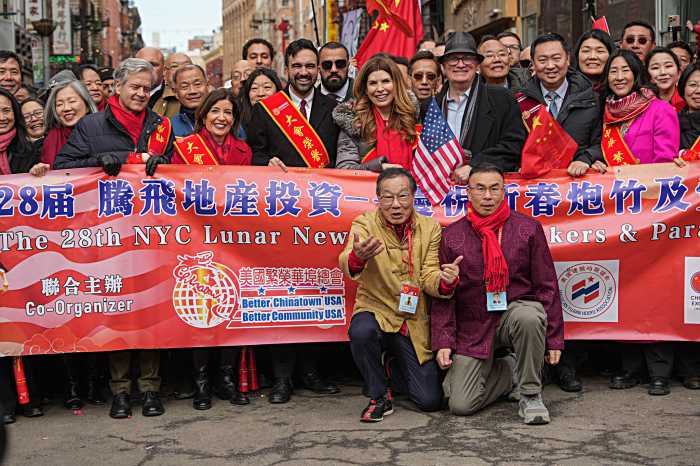This year, as Roman Catholics were observing Good Friday - when they were delivered from sin through the crucifixion of Jesus by Roman soldiers - Jews were celebrating Purim.
The Lubavitch Northeast Queens Chabad held a Purim breakfast on Friday, March 21, at the Adria Hotel on Northern Boulevard in Bayside, which was attended by hundreds of children and adults, including City Councilmember David Weprin, a strong supporter of the group. “He’s our best friend,” said Rabbi Yossi Blesofsky.
Purim commemorates the deliverance of Jews in Persia during the 5th Century B.C.E., from an evildoer’s plot to exterminate them. The tale of villainy punished and good deeds rewarded is recounted in the Old Testament book of Esther.
Achashverosh, the king of a Persian Empire of 127 provinces stretching from India to Ethiopia, was compelled to execute his wife after a domestic dispute.
After a search for a replacement, he chose Esther (a.k.a. Hadassah,) who was raised by a relative, Mordecai, and secretly a Jew.
Mordecai overheard a plot against the king by two of his close ministers, and relayed it through Queen Esther. The ministers were executed.
The man promoted to be the king’s closest minister, one Haman, took offense because Mordecai would not bow down to him.
Outraged, and rather than be seen as engaged in personal revenge, he convinced the King to exterminate all Jews in the empire, on a date he selected by casting dice, or “Pur” in the local language.
The plot was thwarted by Esther, who had gained such gratitude and affection from the King that he promised her anything, up to an equal share of the empire.
Esther revealed the truth of her identity and the circumstances leading to the genocidal plot, which the King reversed, ordering the extirpation of Haman’s entire family.
Since that time, Jews have recounted those events on Purim, heeding the command to “wipe out” their antagonists by making noise when Haman’s name is mentioned during readings of the Book of Esther.
They celebrate with food and drink, and in more recent times, children (and many adults) dress up in costume, leading the festival to become known as “Jewish Halloween.”






























